
Florent Pagny is a French singer-songwriter, musician and actor. He records his work in French, as well as in Italian, Spanish and English. His greatest hits include "N'importe quoi", "Savoir aimer" and "Ma Liberté de penser"—all three were number one in France. As of 2018, he has sold more than 6 million singles and 10 million albums, becoming the 17th best-selling artist of all time in France.

"Désenchantée" is a song recorded by French singer-songwriter Mylène Farmer. The first single from her third studio album L'autre..., it was released on 18 March 1991 and achieved great success in France, topping the charts for more than two months. It was Farmer's most successful song and is generally considered her signature song.
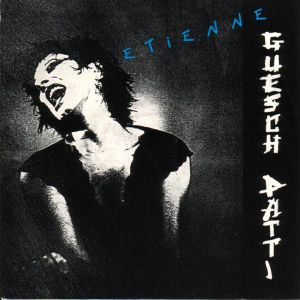
"Étienne" is a 1987 song recorded by French artist Guesch Patti, from her album, Labyrinthe. It was released as her debut single in late 1987 in several European countries. Particularly famous for its suggestive music video which was censored on certain TV channels, the song was a great success in France, Italy, Switzerland, Austria and Germany where it was a top ten hit.
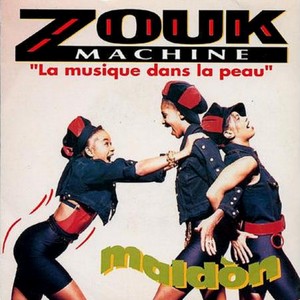
"Maldòn" is a 1989 song recorded by the Guadeloupean band Zouk Machine. Written and produced by Guy Houllier and Yves Honoré, the song is the first single from the album of the same name, and was released in May 1990. In France, it achieved a huge success, topping the singles charts for nine weeks.

"Viens boire un p'tit coup à la maison" is a 1987 song recorded by the French band Licence IV. Released as a single in March 1987, the song achieved a huge success in France, becoming one of the best-selling singles of the 1980s in France.
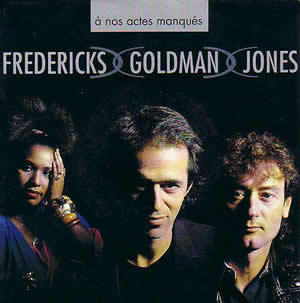
"À nos actes manqués" is a 1991 song recorded by the French trio Jean-Jacques Goldman, Carole Fredericks and Michael Jones. Released as the second single from their eponymous album, the song was one of the summer hits in France and was the trio's most successful single in terms of ranks on the chart. In 2011, M. Pokora covered the song on his album Mise à Jour and released it as a single, which achieved some success in French-speaking countries. The trio also released an English version, To The Deeds We Missed.

"Là-bas" is a 1987 song recorded as a duet by the French singer Jean-Jacques Goldman and the British-born artist Sirima. It was the second single from Goldman's 1987 double album Entre gris clair et gris foncé. It was a smash hit in France and became a popular song throughout the years.

"C'est ta chance" is the name of a 1987 song recorded by the French singer and songwriter Jean-Jacques Goldman. It was released in April 1988 as the third single from his album Entre gris clair et gris foncé, on which it features as the fifth track. The song achieved a moderate success in France, in comparison with Goldman's previous and next singles.

"Savoir aimer" is a 1997 song recorded by the French singer Florent Pagny. It was the first single from his album of the same name, on which it features as first track, and his 14th single overall. Released in October 1997, it was a smash success in France and Belgium, topping the chart for several months, and remaining Pagny's most successful single.

"Ma liberté de penser" is a 2003 pop song recorded by French singer Florent Pagny. It was the first single from his album Ailleurs land, and was released in March 2003. It achieved a huge success in France and Belgium (Wallonia), topping the singles charts for several weeks.
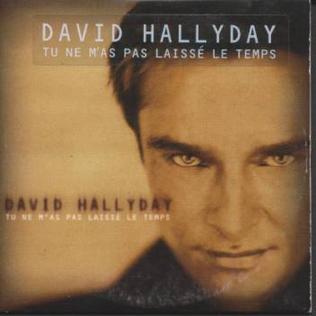
"Tu ne m'as pas laissé le temps" is a 1999 song recorded by French artist David Hallyday. It was the lead single from his album Un Paradis / Un Enfer, released about two weeks after the single, in June 1999. It was a hit in France and Belgium (Wallonia) and remains to date David Hallyday's most successful single.

"High" is a 1988 song recorded by French artist David Hallyday. It was the second of the four singles from his debut studio album True Cool. Released in November 1988, the song was a hit in France, becoming David Hallyday's first number-one single.

"Évidemment" is a 1987 pop song recorded by French singer France Gall. It was the third single from her album Babacar and was released on 7 March 1988. In France, the song achieved success, becoming Gall's third top ten hit.
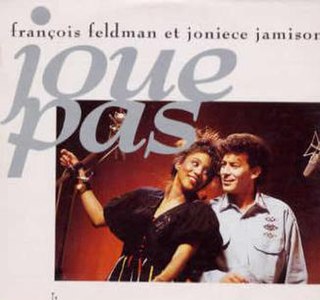
"Joue pas" is a 1989 song recorded by French artist François Feldman as a duet with the American singer Joniece Jamison. It was released in July 1989 as the first single from Feldman's album Une Présence, and was his fifth single overall. It achieved great success, becoming a number two hit and a popular song throughout the years.
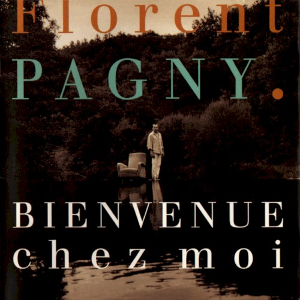
Bienvenue chez moi is a 1995 album recorded by French singer Florent Pagny. It can be considered a compilation because it contains the singer's previous hit singles, plus some new songs. It was his fourth album overall and was released on September 26, 1995. It achieved huge success in France and Belgium (Wallonia), where it remained charted respectively for 81 and 73 weeks, including several weeks atop. There are three duets on this album : "I Don't Know", with Noa, "Jamais", with Johnny Hallyday and "Oh Happy Day", with La Chorale des Cherubins de Sarcelles. The cover version of Lucio Dalla's song, "Caruso", was released as single and became a success.
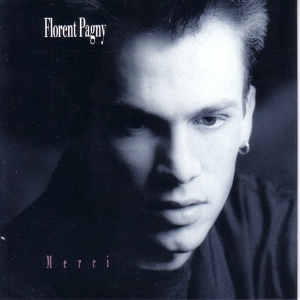
Merci is a 1990 album recorded by French singer Florent Pagny. It was his first studio album and was released on May 1, 1990. The album was a success in France, where it remained in the top 50 for 44 weeks, including two weeks at #10. It was entirely written by the singer himself and contains several songs deemed controversial at the time, such as "Presse qui roule", which is critical of press. The album provided four singles which were moderately successful in France: "J'te jure" (#16), "Ça fait des nuits" (#17), "Presse qui roule" (#24) and "Prends ton temps" (#42).

"Qui a le droit..." is a pop song recorded by French artist Patrick Bruel. Written and composed by Gérard Presgurvic and Patrick Bruel, it was the first single from his album Si ce soir..., recorded after his first concerts tour. It was released in a live version in late October 1991 under RCA label and was a hit in France, becoming Bruel's only number-one single.

"Une autre histoire" is a 1987 pop song recorded by French singer Gérard Blanc. It was the first single from his debut album Ailleurs pour un ailleurs and was released in May 1987. It became a smash hit in France in the summer and was covered by several artists throughout the years, thus achieving cult status. It can be deemed as the singer's signature song.

"J'ai peur" is a 1989 song recorded as a duet by French and American singers François Feldman and Joniece Jamison. Written by Jean-Marie Moreau with a music by Feldman, this dance-pop song was released in February 1991 and became the fifth single from Feldman's 1989 Diamond-awarded album Une Présence. As the previous singles from the album, it was a successful top ten hit, though it was the less-selling one.

"Les Parfums de sa vie " is a 1988 song recorded by French artist Art Mengo. Written by Patrice Guirao with a music composed by Mengo, it was his debut single from his 1990 album Un 15 août en février on which it is the ninth track and was released in October 1988. In France, it became a top ten hit and Mengo's most successful single. In February 1997, Mengo performed the song during his concert in Toulouse and this version available on his abum Live au Mandala. In 2000, the song was notably covered by Florent Pagny which released it as the second single from his album RéCréation and made it a top 40 single in France and Belgium (Wallonia).




















